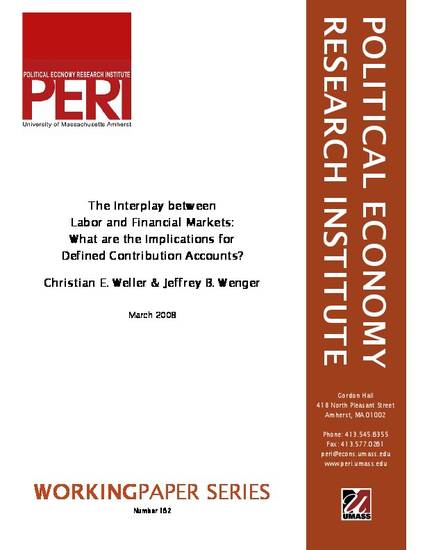
The relationship between earnings, savings and retirement is well-known, however the linkage between labor market outcomes and financial market performance is generally unacknowledged. We examine the implications of the link between labor markets and financial markets for workers who save money in individual retirement accounts. Specifically, differences in labor market outcomes across groups may imply differences in the timing of investments, which may reduce savings over time for these groups compared to their counterparts. Using monthly data from the Current Population Survey (1979-2002) we generate hypothetical investment portfolios using stock and bond indices. We exploit differences across demographic groups in unemployment and wage growth, and use these differences to examine each group’s investment outcomes. We then disaggregate the total effects into short-term and long-term components. We find some evidence of short-term market timing effects on investment, but we find much larger long-term effects for some groups. Our findings suggest that, for many people, the retirement savings losses associated with the timing of markets are similar to the costs of annuitizing savings upon retirement. The differences are especially pronounced by education and sex.
Available at: http://works.bepress.com/christian_weller/11/
